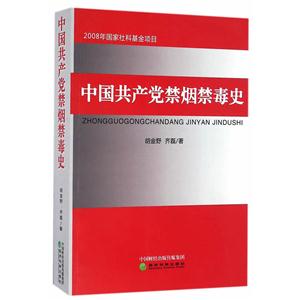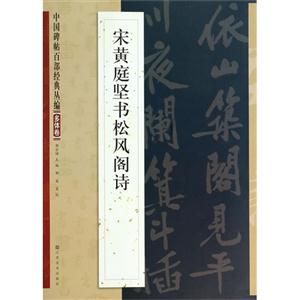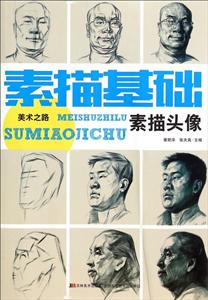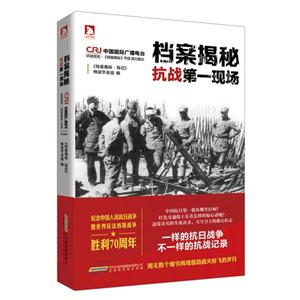从汉学到后华性有关中国、中国人和中华文明的知识史

|
从汉学到后华性有关中国、中国人和中华文明的知识史作者:石之瑜,何培忠,唐磊 主编 开 本:16开 书号ISBN:9787520307550 定价:59.0 出版时间:2017-06-01 出版社:中国社会科学出版社 |
从汉学到后华性有关中国、中国人和中华文明的知识史 内容简介
《从汉学到“后华性”:有关中国、中国人和中华文明的知识史(英文版)》主要通过收集中国、中华文明和世界各地的中国人民的个人口述历史,形成一本关于中国的“知识史”,考虑中国、中国学者和中国学术之间的关系,提出了“后中国”的概念。该课题来自于中国社会科学院信息情报研究院靠前中国学研究中心,自2005年以来一直得到各国和民间团体的支持。
从汉学到后华性有关中国、中国人和中华文明的知识史 目录
IntroductionFollowing the Path ofItalian Sinology
China in Belgium:From a Religious,Economic and Political Interest to the Development of an Academic Discipline
Changes Historical Context about Modem Japan’S Cognition on China:A Discussion From the Alame 0f“Shina”
Indonesian Intellectuals and China:A BriefIn仕oduction
Hungarian and Polish Sinology——Parallel Lives
From Sinology to Contemporary China Studies:The Case of Hong Kong in the Post war Period
The Social Construction ofthe Realm ofthe Discipline:Polish Sinology
China Studies in the Philippines:Evolution and Challenges
China Studies in Contemporary South Asia
A Project Note on the“Russian Sinology(2008 20 1 5):ResuRs and Prospects
Oral History ofChinese Studies in Thailand:A Project Note
A Comparative Analysis of the Oral History of Vietnamese Scholars nn China Studies
从汉学到后华性有关中国、中国人和中华文明的知识史 节选
4.The Italian "foreign experts" Since the establishment of formal diplomatic relations with Italy in 1970, several Italians have been called in China with the important status of "Foreign Experts" and this still happens nowadays. These people have competences China needs for its economic development or for its diplomatic relations with the rest of the world. Therefore, the Italian experts had a key, strategic role in Chinese growth and were kept in very high consideration. As Alessandra Lavagnino, former Italian lecturer in Shanghai in the 1970s, remembers in her interview: "They would make fun of me because I would eam more than Chairman Mao. I was making 420 yuan per month. The students were getting 19 yuan a month, the other teachers 45, the foreign experts 420! They also paid for my accommodation, health care. It was a perfect situation. I was one of the foreign experts. We were few and we were very safeguarded, spoiled with trips and other things. A very high and prestigious rank." Back to Italy, many of them are highly contributing to the knowledge of China in Italy. Alessandra Lavagnino is full professor of Chinese language in Milan since 2003 and is today continuing her sinological research in different fields. Among her several publications we can list her translations of classical Chinese texts, like: Liu Xie, // tesoro delle lettere. Un intaglio di draghi (Milano, 1995) or modern Chinese literature, like Gao Xingjian, Una canna da pesca per mio nonno (Milan, 2001), and Zhang Ailing, La storia del giogo d'oro (Milan, 2006). Sauro Angelini moved to China in 1976 and worked to revise the translation ofthose official Chinese magazines that were published in Italian, French, English, etc. He eventually 'Opened his own Italian restaurant in Beijing and remained in China for several years. Giuseppe Portogallo, called by the Chinese govemment as an expert in the 1980s, spent more 'than 30 years in China working mainly in the field of airport security. In 2007, he founded the Fondazione Prospero Intorcetta Cultura, Aperta, promoting scientific research on Prospero Intorcetta and, more in general, cultural exchanges betweenltaly an China. 5.The diplomats Several Italian Sinologists or China experts have come from the ranks of diplomacy. As already noted in Bertuccioli's study of 1991, many Italian interpreters or diplomats working in China later became Chinese language.professors jn Italy. In the 1970s, few diplomats could speak Clunese. Among them weve Mario Crema and Mario Filippo Pini, who went to China immediately before and after the formal establishment of diplomatic relations between Italy and the PRC.I ' After a short period as First Secretary in Hong Kong, Crema went back to Italy on leave in 1966 and was called by the Ministry of Foreign Affaires, Fanfani, who had heard about his knowledge of Chinese and wanted to meet him. china-ltaly official relations had not started yet, but Fanfani was considering the recognition of China already and wanted to send Crema to find out more about the situation in China. Here is the episode from the interview to Mario Crema:2 I was First Secretary, a Minister of Foreign Affairs doesn't usually receive a First Secretary. [...] They scheduled the meeting and one moming I went to meet Fanfani. He received me and we talked for about forty minutes. It was almost like a university exam. He asked me about the political situation. I explained that nothing was going to happen, that the regime would never collapse because, first of all, there were no elements that could make one think about a comeback of the Guomindang. There was an internal debate at the moment, but it was not very clear. I explained that the economic situation, from what I had been able to hear ni Hong Kong, which was a strategic place, did not seem to be as catastrophic as some Japanese journalists were reporting-that in entire provinces people were starving. Iexplained that nothing serious was going to happen, that was just a period... And he said some words I will never forget: "A growth disorder." "Exactly," I said. ……
历史 史学理论
在线阅读
- 最新内容
- 相关内容
- 网友推荐
- 图文推荐
| [高考] 2022 西安电子科技大学《软件工程》大作业答案 (2022-04-25) |
| [家长教育] 孩子为什么会和父母感情疏离? (2019-07-14) |
| [教师分享] 给远方姐姐的一封信 (2018-11-07) |
| [教师分享] 伸缩门 (2018-11-07) |
| [教师分享] 回家乡 (2018-11-07) |
| [教师分享] 是风味也是人间 (2018-11-07) |
| [教师分享] 一句格言的启示 (2018-11-07) |
| [教师分享] 无规矩不成方圆 (2018-11-07) |
| [教师分享] 第十届全国教育名家论坛有感(二) (2018-11-07) |
| [教师分享] 贪玩的小狗 (2018-11-07) |






